Photographing the things homeless people in California own
- Published
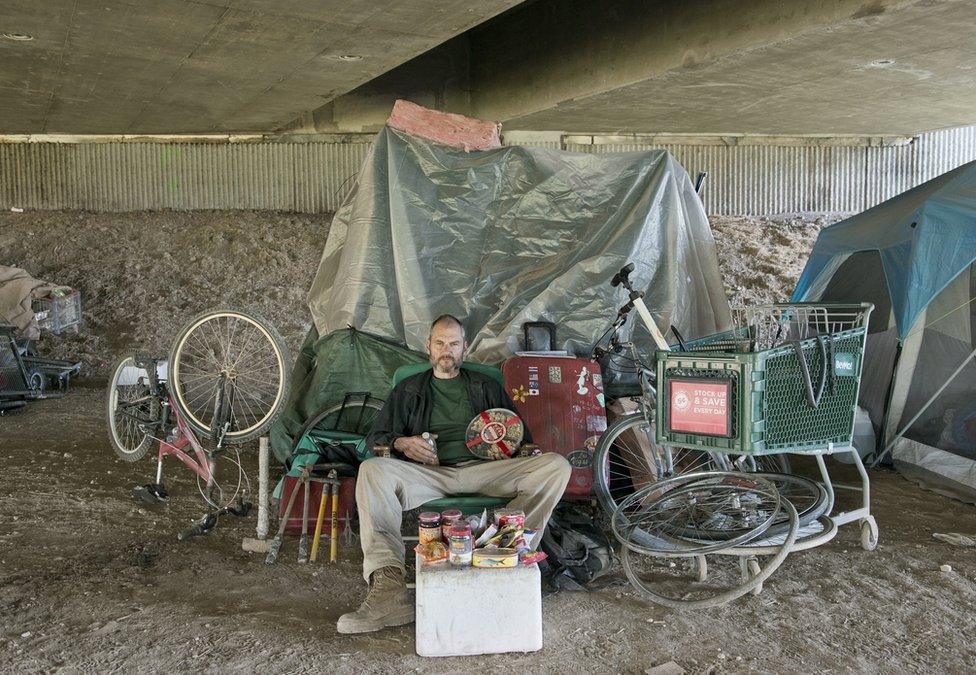
Huang Qingjun spent nearly a decade travelling to remote parts of China photographing families outside their homes with all their household possessions. Now he has done the same for homeless people in California.
"In 2010, the first time I stepped on American soil, I saw lots of homeless people on the streets of New York, but didn't dare approach them, because I'd been told many of them were linked to drugs, robbery and violence," says Huang Qingjun.
During a visit to the Los Angeles in 2015 with a film crew, he saw dozens of tents erected on the roads near the crew's offices - a homeless encampment.
"I had previously photographed 53 families with all their worldly belongings, and I wanted to see what sort of belongings these homeless families would have."
Although Huang doesn't speak English, it didn't discourage him from trying to take portraits.
"I thought a smile would be the best language, and that pictures don't need words," he says. "I didn't bring my Nikon camera, I thought this would make me less approachable, so I brought my iPhone instead."
He went to the encampment the next morning and saw two people talking.
"I approached them, and let them see the photos I'd taken in China on my phone, and indicated I wished to photograph them," he says.
"I didn't think they'd start yelling at me. I couldn't tell what they were saying, but from their expressions it was obvious they didn't agree. So my first attempt failed."
But shortly after, Huang met a homeless man named Scott. Huang helped move his tent and bought him coffee. When Scott was settled, he agreed to be photographed.

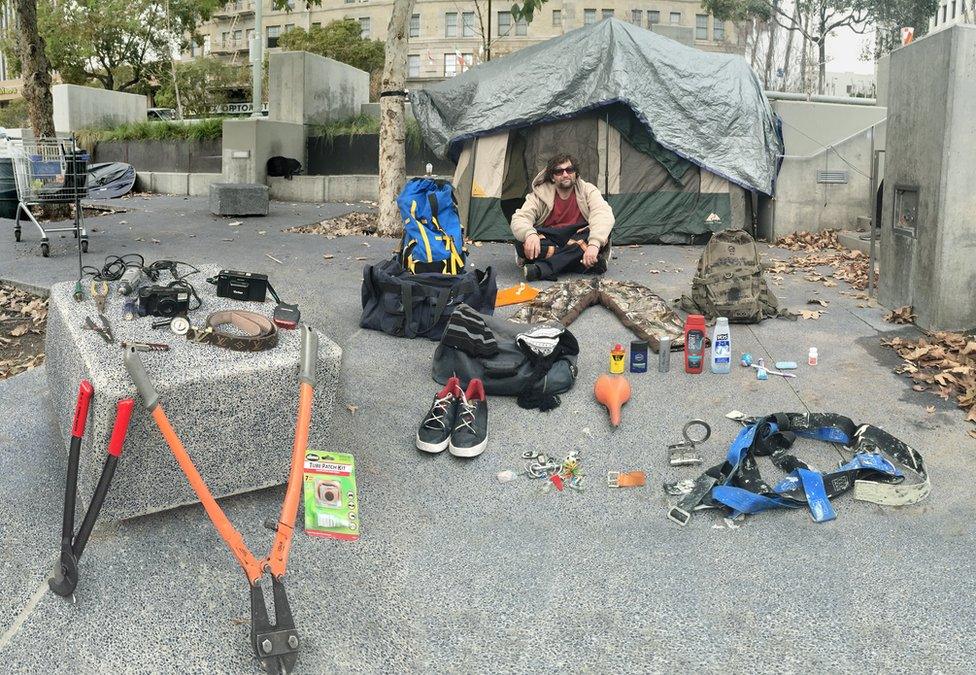
Scott, 41
"The brief version of my story: I started using drugs when I was 12, and I'm 41 now. I'm homeless and jobless. I'm kind of strung on heroin and speed, but I still got my brains. I don't have much actual education at schools, I am self-taught.
"I can do a lot of different types of art, I'm trying to be an artist."

Huang returned to the US in February 2016, travelling to San Jose, California.
"One day during my walk I found two areas where homeless people stayed, one by the river and one by a railway, and that gave me the idea of photographing their belongings again," Huang says.
He chose the railway site and brought his professional camera.
"I saw Charles Nelson sitting there in the sun," he says. "I showed him my previous works, and indicated I wanted to photograph his belongings." Huang says. Through Nelson's help, Huang interviewed and photographed 10 other people.
Huang says he used translation software to communicate with his interviewees on the spot - and also recorded audio which his friends translated when he got back to China.
See more of his photographs and the people he met below.

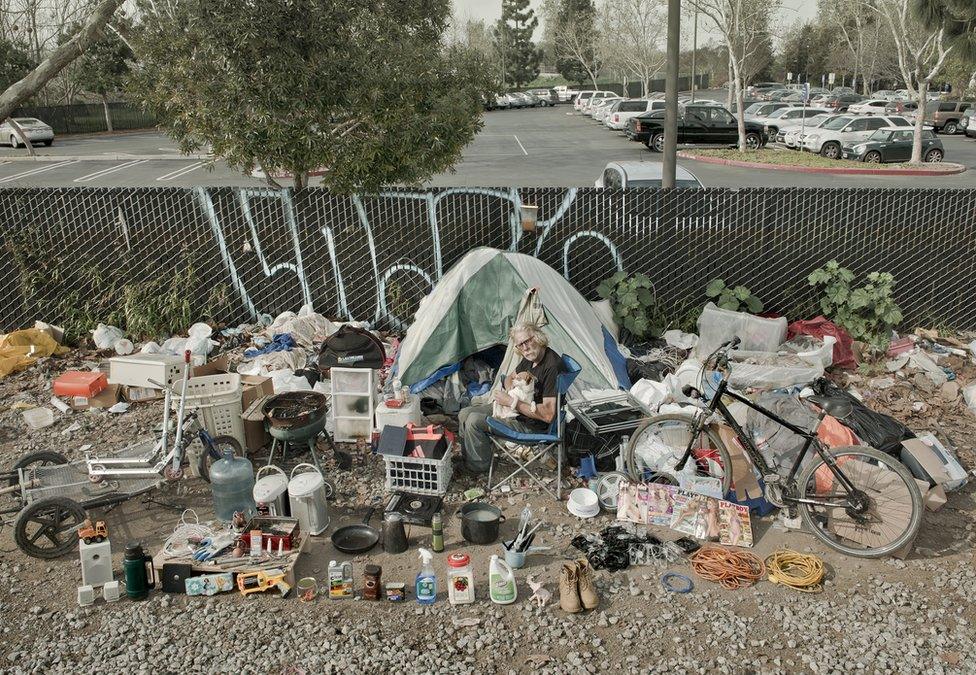
Charles Nelson
"I lost my job and I lost my apartment. A friend of mine was already staying out here.
"So I asked him - is there a spot for me? He said yes. I had a tent, put it up, and started staying with him and helped him out a little bit because he was sick. About four months later he passed away. By then my situation here had improved, so I kept living here."

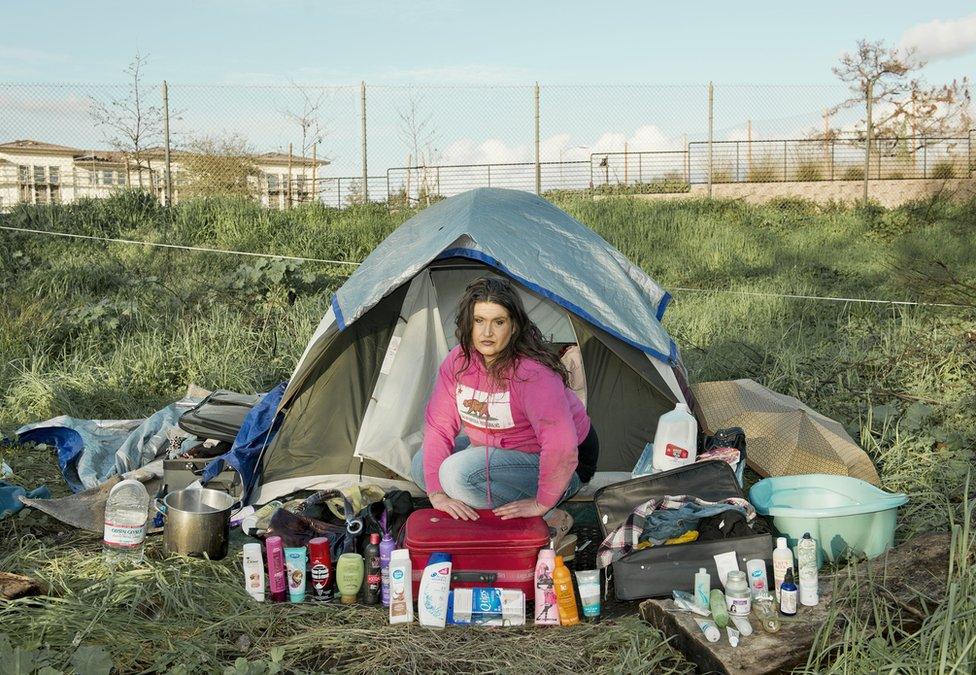
Melissa Streich, 37
"I got in with a bad crowd and became homeless as a result.
"I couldn't live like this very long. I'm working right now and I'm going to get my apartment really soon."

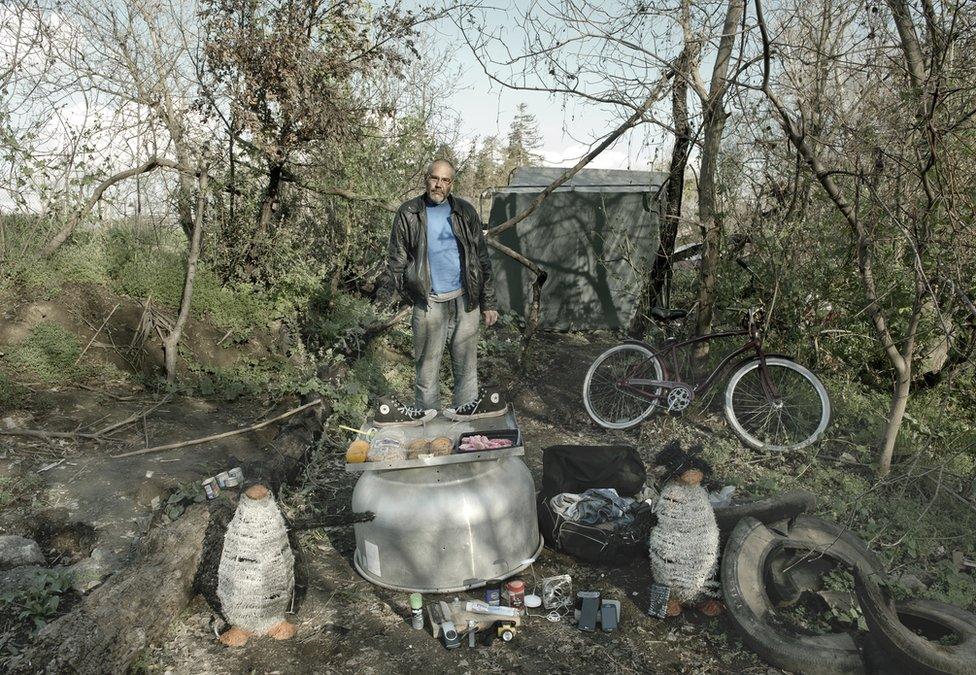
Michael T Oliver, 47
"I became divorced, homeless and jobless in one week. This is the only way I can live right now. I sometimes get some food donations from the government, but I don't go to church groups or other organisations."
"What do I need most? A car. I used to drive for a living, but I don't drive anymore. This is what is right now. I don't know. I don't have much of a choice."

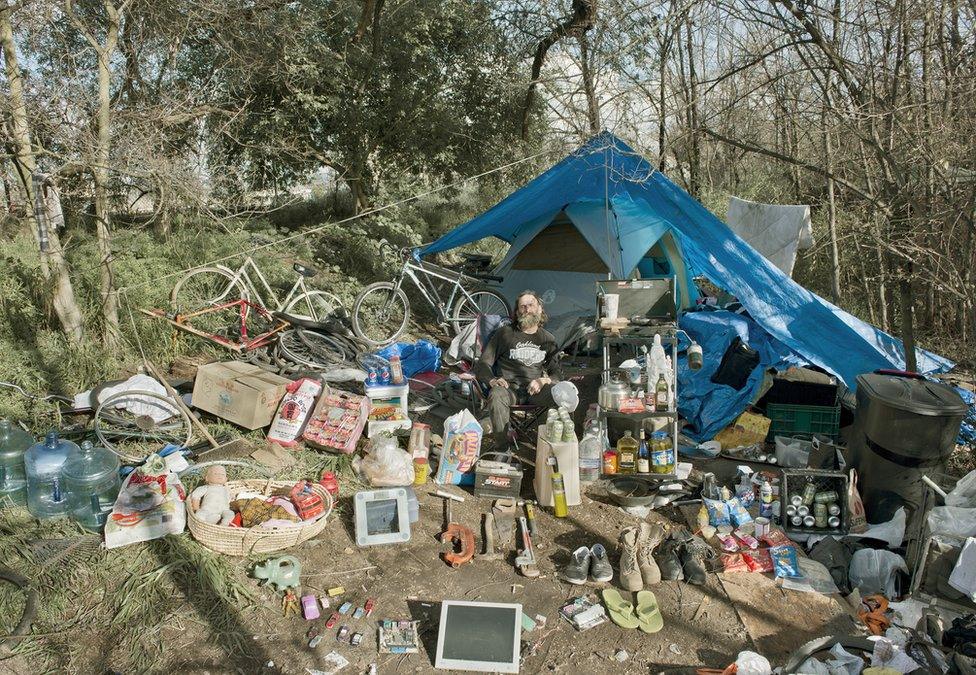
John Reyes, 57
"I'm living this sort of life because I was hit by a driver. I used to be a machinist for about 22 years. After being hit, I ended up in hospital for three months. I don't have lots of memory any more because a portion of my brain is damaged.
"Now I'm mad at everything. I choose to not to live with my wife because I don't want to be mad at her. We were married for, like, 20 years and after the hospital I barely knew who she was.
"I hate the driver for making me like this. The right thing for that man to do was to stop. I can't use Social Security or any pension because I can't prove that he was wrong. "

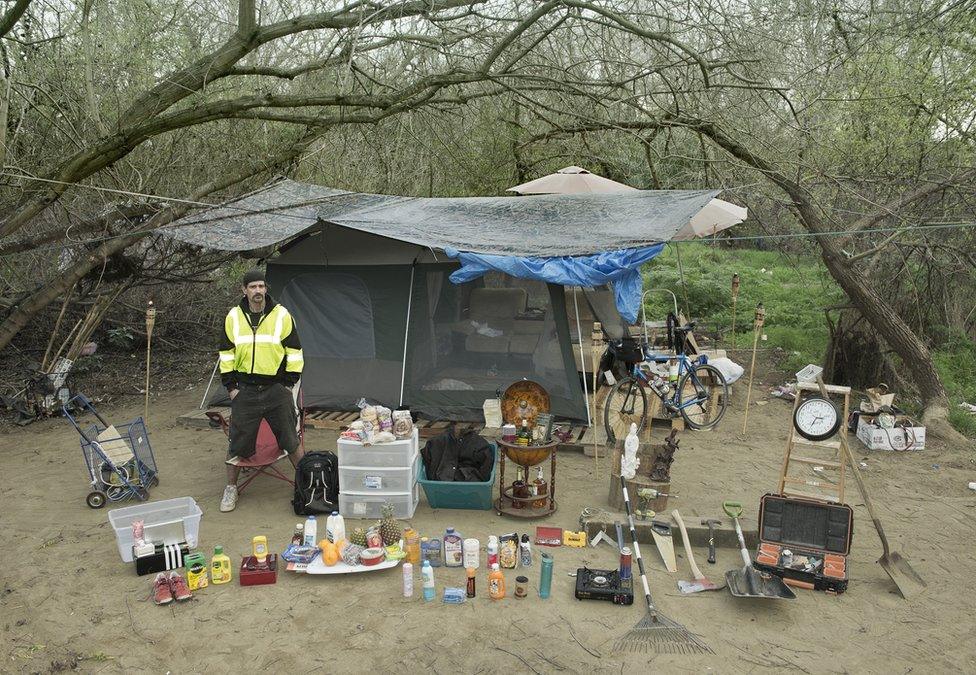
Johan Marshall, 50
"I can't find a job anymore. Nobody hires an old cellphone engineer. I chose this way of living because it's comfortable. There are hard times, nothing to do.
"I don't receive any subsidies from the government, or from a church or other organisations. Sometimes I fix laptops. We need heat the most, generators would be wonderful to heat up the tent."

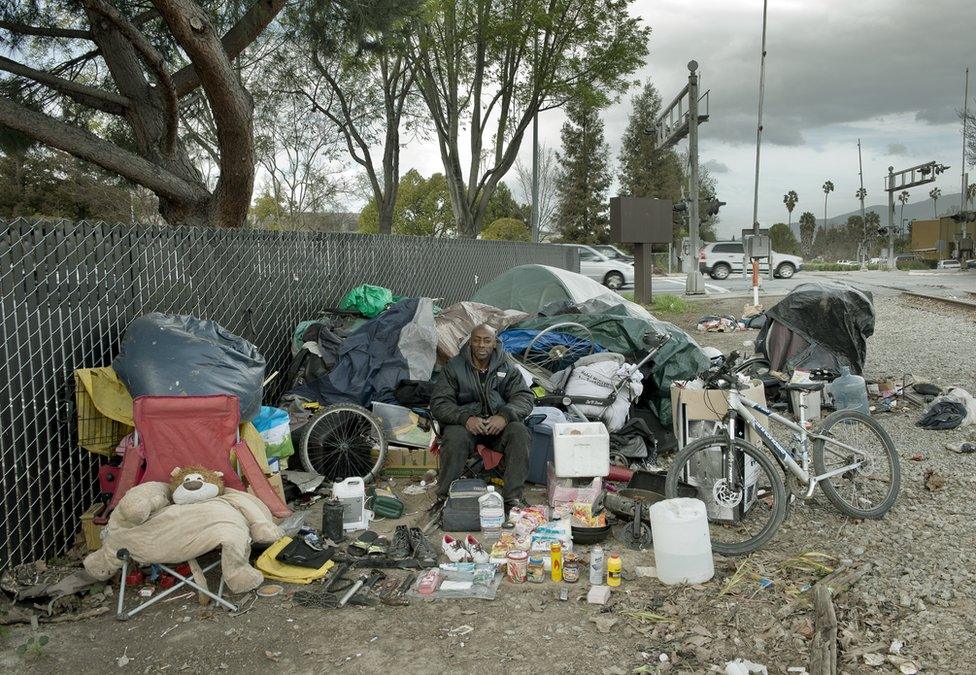
Anthony Williams, 49
"I'm from East Palo Alto. I chose this way of living really because a girl I was with when I was first here, she was out here homeless. We were both working.
"I don't get government assistance. I do get help from churches. There are other people who come here to help two or three times a week. I need a job the most.
"Two years ago, my good friend Rodalfo Hernandez was murdered. He was the first person I met out here - 60-something years old, would give anyone the shirt off his back. Doesn't seem like the police are doing anything about his murder. I want to find out who killed him."

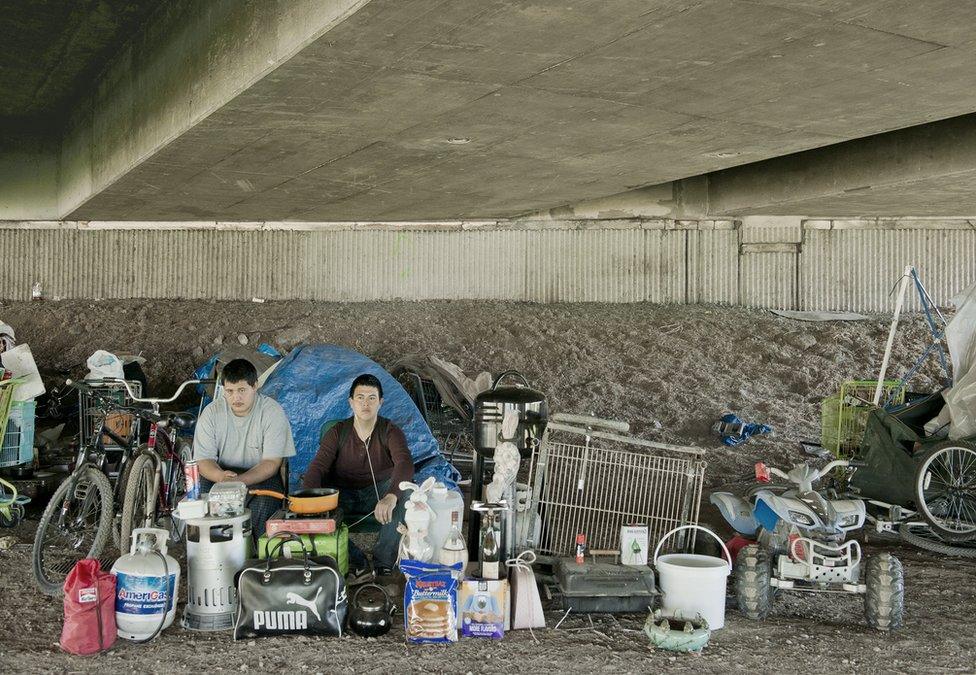
Christo, 21, and Jacob, 18
"We're brothers, we also have two brothers who are a little younger, who live with our parents. We've been homeless for four years now.
"We didn't choose to live like this, we had no other choice. We've become used to it, but we still think this isn't a good way of life, and our goal is to leave as soon as possible."

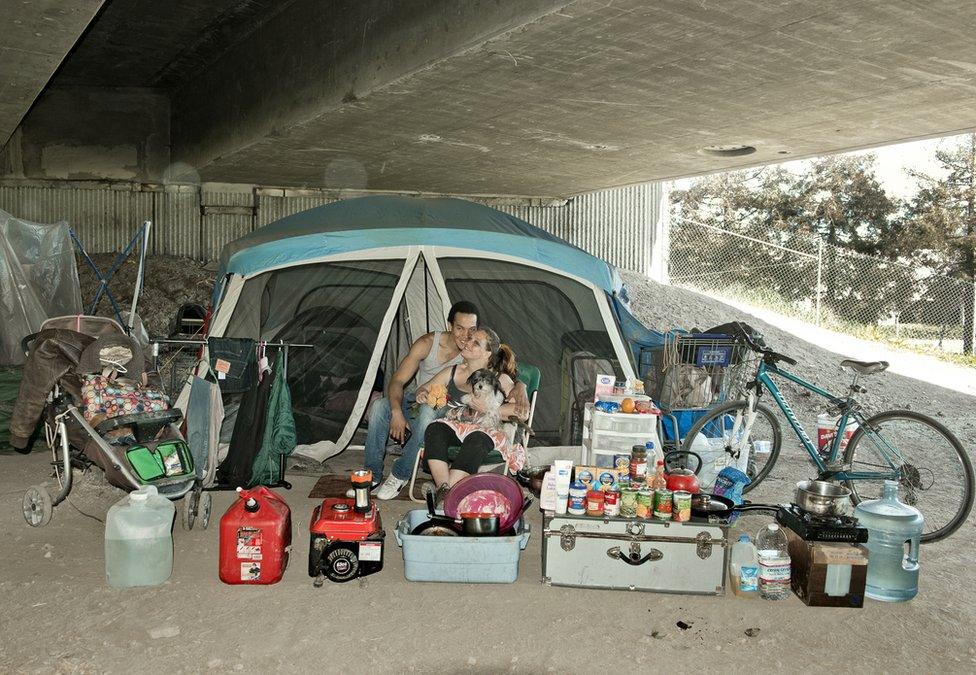
Teone, 23, and Lynette, 40
Teone: "I came here about three or four years ago when I was on vacation with some friends. I pretty much never turned back around. The weather is great and people are nice. It's expensive to live here, but we have to work hard and become self-reliant."
Lynette: "I have been living in California for 33 years, on and off. I like the weather here too.
"I've been homeless for eight years. We have a one-year-old daughter together. She is with family right now. I have five other kids besides her."

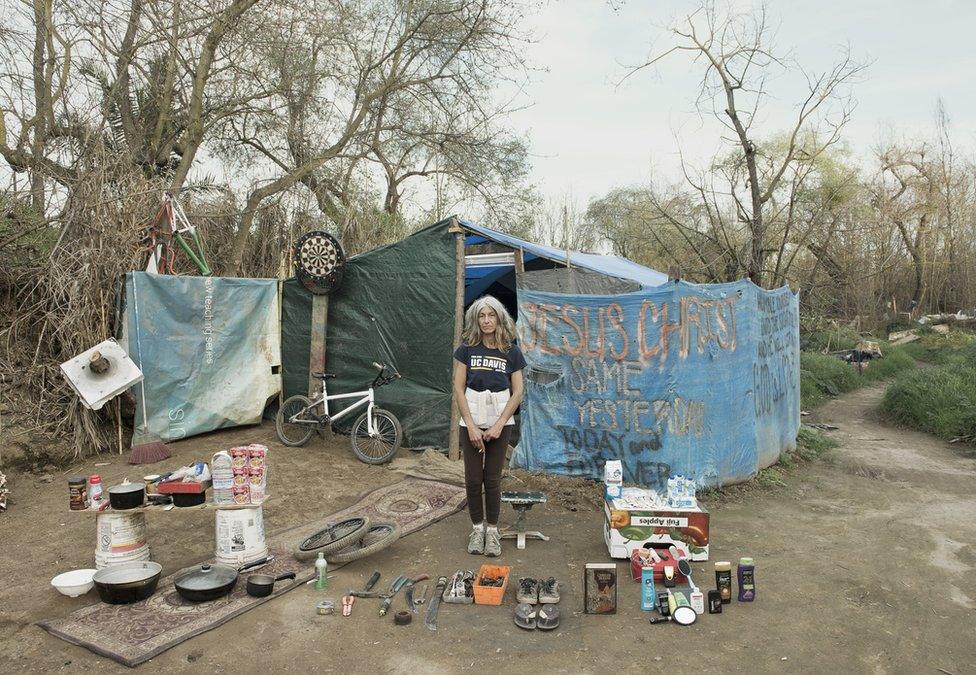
Ann Bica
"I was born in San Francisco, California. I have family that emigrated here from Italy. I am Catholic, that's my faith. I lived here in this area since I was born. I haven't been to Italy yet, but I would like to go."
"This is different from what I'm used to, living here. I guess most people would say homeless. It has everything to do with my faith, our Father. That's why I'm here.
"I'm fine with it, it's been adjustment, it's not been easy, but I'm fine with it. I know it's not going to be forever... my life has always been moving and changing."
Translations by Helier Cheung

More from Huang Qingjun - The things Chinese families owns
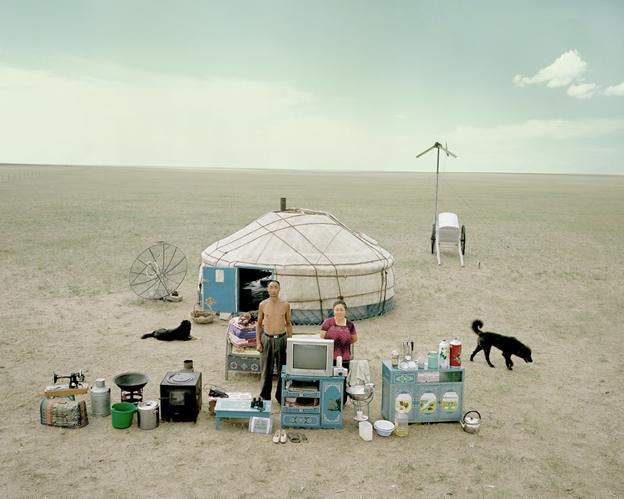
- Published24 September 2012
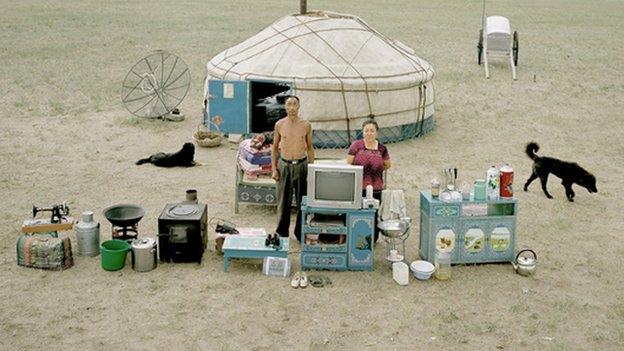
- Published10 May 2016
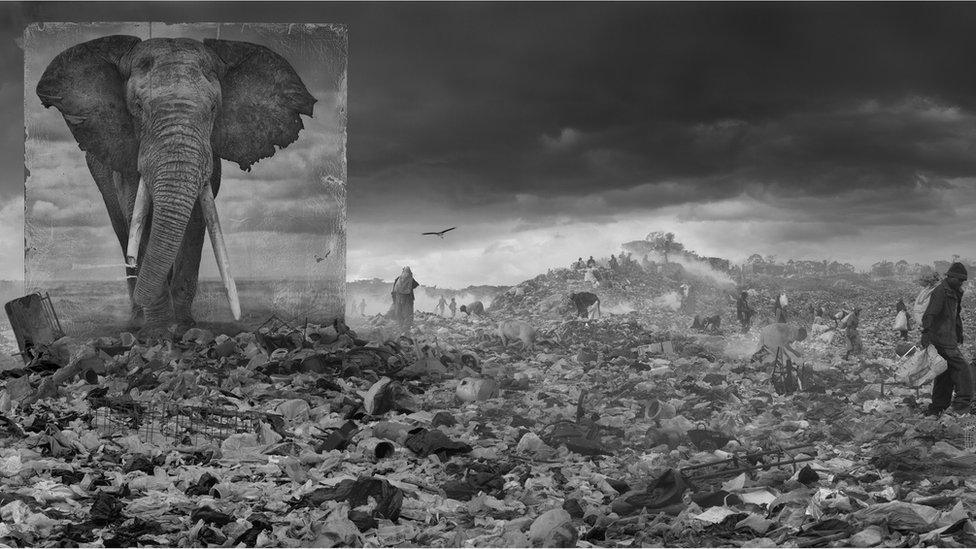
- Published30 January 2016
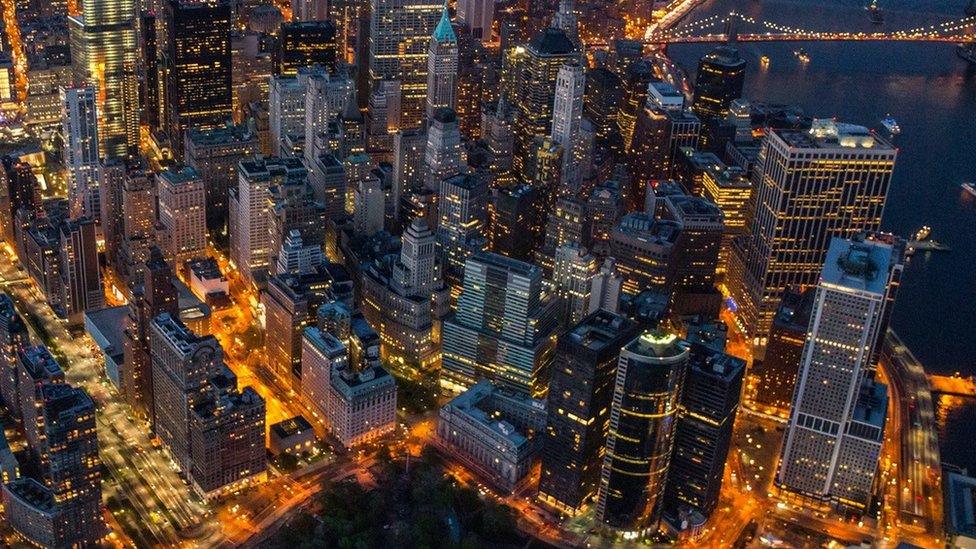
- Published27 June 2016